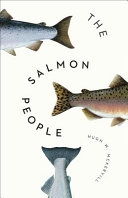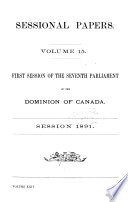You are using an out of date browser. It may not display this or other websites correctly.
You should upgrade or use an alternative browser.
You should upgrade or use an alternative browser.
Historical fishing accounts
- Thread starter MikePA
- Start date
MikePA
Well-Known Member
Thanks! I'll take a look.While not quite the time frame you seek, all of Billy Proctor's books about growing up and spending a lifetime fishing BC coastal waters are a great read and should be on every fisherman's bookshelf in my humble opinion.
RiverBoy
Well-Known Member
agreed. a beautiful snapshot back in time. the part that boggles my mind was all the kids of the fishermen and coastal loggers being ferried to school in a double ended fishing boat. great bookWhile not quite the time frame you seek, all of Billy Proctor's books about growing up and spending a lifetime fishing BC coastal waters are a great read and should be on every fisherman's bookshelf in my humble opinion.
wildmanyeah
Crew Member
I'm curious if there's any good resources that talk about what fishing, life around the ocean was like when the ecosystem was in it's sort of natural balance (pre-1900?). Thanks!
hard to get a sense of it pre 1900s whaling had wiped out a lot whales. By 1910 fur trade had wiped out sea otters and the northern fur seal.
As the railway was being built it completely whipped out trout in lakes and streams as they used it to feed rail workers.
MikePA
Well-Known Member
Interesting!hard to get a sense of it pre 1900s whaling had wiped out a lot whales. By 1910 fur trade had wiped out sea otters and the northern fur seal.
As the railway was being built it completely whipped out trout in lakes and streams as they used it to feed rail workers.
silversands
Member
Find a copy of the book The Salmon People...originally published 1967. Amazing history of salmon on the westcoast 100 year or more ago...and the commercial fishing history too. Great read. One of the things I found most interesting was how much placer (gold) mining during the BC gold rush ruined so many salmon rivers and creeks as the miners did not think about the fish and just tore up the gravel and bedrock in search of gold.

The Salmon People
The Salmon People is a masterful history of Canada's west coast. From the first people's tales of salmon to BC's first cannery, to overfishing and the environmental concerns that still exist today, this comprehensive early history is a must-read for anyone interested in how BC's fishing industry...
books.google.ca
RiverBoy
Well-Known Member
Yep. logging and mi i g have ruined so many watersheds it’s unreal. My beloved Oyster River was a barren, dead river when i was a little kid. there was literally no life. no slime, no growth.Find a copy of the book The Salmon People...originally published 1967. Amazing history of salmon on the westcoast 100 year or more ago...and the commercial fishing history too. Great read. One of the things I found most interesting was how much placer (gold) mining during the BC gold rush ruined so many salmon rivers and creeks as the miners did not think about the fish and just tore up the gravel and bedrock in search of gold.

The Salmon People
The Salmon People is a masterful history of Canada's west coast. From the first people's tales of salmon to BC's first cannery, to overfishing and the environmental concerns that still exist today, this comprehensive early history is a must-read for anyone interested in how BC's fishing industry...books.google.ca
then the Oyster River Enhancement Society was started and little by little life came back. the bio diversity that began due to the life cycles of the mainly pink salmon changed that river for the better. anyone who says hatcheries are no good have got a few screws loose in their head
wildmanyeah
Crew Member
this is from 1920 https://ia600909.us.archive.org/31/items/rodcreelinbritis00willrich/rodcreelinbritis00willrich.pdf
yeah can also read this

yeah can also read this
Sessional Papers of the Dominion of Canada
Sessional Papers of the Dominion of Canada
"Report of the Dominion fishery commission on the fisheries of the province of Ontario, 1893", issued as vol. 26, no. 7, supplement.
books.google.ca
wildmanyeah
Crew Member
Yep. logging and mi i g have ruined so many watersheds it’s unreal. My beloved Oyster River was a barren, dead river when i was a little kid. there was literally no life. no slime, no growth.
then the Oyster River Enhancement Society was started and little by little life came back. the bio diversity that began due to the life cycles of the mainly pink salmon changed that river for the better. anyone who says hatcheries are no good have got a few screws loose in their head
its funny when you read this from the 1920s and wonder, it really is hard to get a sense of what things were like.
Circa 1920
"THE OYSTER RIVER This is quite a nice sized creek, ideal for fly fishing. It is situated about half-way between Courtenay and Campbell River. There is no hotel accommodation but some of the settlers will put people up. With the aid of a motor car it can be fished from Courtenay. This creek used to be grand for fly fishing, the trout run to good size and at one time a good sized- basket could be filled in a short time. It has, however, sadly deteriorated and big catches are seldom made. It is, however, still good at times and well worth a visit if you are anywhere near. May and June are the best months, the water gets too low in July unless there happen to be some good rains"
RiverBoy
Well-Known Member
wow. thank you for that. where is this from?its funny when you read this from the 1920s and wonder, it really is hard to get a sense of what things were like.
Circa 1920
"THE OYSTER RIVER This is quite a nice sized creek, ideal for fly fishing. It is situated about half-way between Courtenay and Campbell River. There is no hotel accommodation but some of the settlers will put people up. With the aid of a motor car it can be fished from Courtenay. This creek used to be grand for fly fishing, the trout run to good size and at one time a good sized- basket could be filled in a short time. It has, however, sadly deteriorated and big catches are seldom made. It is, however, still good at times and well worth a visit if you are anywhere near. May and June are the best months, the water gets too low in July unless there happen to be some good rains"
Another amazing book is called “ My Father My Friend” by Arthur Mayse. an account from the eyes of a boy who grew up in Nanaimo but made weekend trips with his father and camped on the Oyster River in their old Model A Ford. just a beautiful read and a glimpse into the good old days.
wildmanyeah
Crew Member
wishiniwasfishin1
Well-Known Member
That’s awesome. Anyone else go straight to chapter 4 ‘Trolling for Salmon’?
Eden Island
Well-Known Member
I wish I could remember the details of the fishing stories from my grandfathers about the 20s and 30 up thru the 60s.
My Grandad fished Cape Lazo and talked about catches of half a dozen or more coho and springs, back when that was legal. My grandmother hated it when fishing was good, because she was canning all day in July or August on a woodstove - in a 400 square foot cottage.
My Grandpa was a Brentwood guy, back in the Depression, when a job as a postie meant you could afford a cottage and a 26' wooden launch. He fished wire line down to 600', using window sash weights on clothespin type quick releases -- and the spring fishing was good in those days.
Wish I'd been listening more when they were talking.
My Grandad fished Cape Lazo and talked about catches of half a dozen or more coho and springs, back when that was legal. My grandmother hated it when fishing was good, because she was canning all day in July or August on a woodstove - in a 400 square foot cottage.
My Grandpa was a Brentwood guy, back in the Depression, when a job as a postie meant you could afford a cottage and a 26' wooden launch. He fished wire line down to 600', using window sash weights on clothespin type quick releases -- and the spring fishing was good in those days.
Wish I'd been listening more when they were talking.
RiverBoy
Well-Known Member
i did too. sounds like reels creeped back then too. they also advised to avoid split rings; a lesson i learned the hard way in nootka one year after losing several “gooders” at maquinnaThat’s awesome. Anyone else go straight to chapter 4 ‘Trolling for Salmon’?
Yea, a lot of fish have been lost by either the hook or the tied on line working its way under and sliding out of the split ring from the fish being played, at least for the guys who did not get out the soldering iron and permanently close the split ring once installed, to prevent that very problem. In the early days the split rings were often brass but now are usually stainless.i did too. sounds like reels creeped back then too. they also advised to avoid split rings; a lesson i learned the hard way in nootka one year after losing several “gooders” at maquinna
Can You Solder Stainless Steel | SRA Resource Center
The short answer is yes! In this article, we'll go over the special considerations to make for successfully soldering stainless steel.
Last edited:
"Notes from the net shed" by amor de cosmos is an entertaining read ....its about a woman working in the fishing industry out of steveston back in the day.Yea, a lot of fish have been lost by either the hook or the tied on line working its way under and sliding out of the split ring from the fish being played, at least for the guys who did not get out the soldering iron and permanently close the split ring once installed, to prevent that very problem. In the early days the split rings were often brass but now are usually stainless.
Can You Solder Stainless Steel | SRA Resource Center
The short answer is yes! In this article, we'll go over the special considerations to make for successfully soldering stainless steel.blog.sra-solder.com
adanac
Well-Known Member
https://polarbearscience.files.word...rehistoric_bluefintuna1997_downloaded-pdf.pdf
i’m not sure if this is considered off topic but this has always intrigued me . sure fire evidence that our coastal natives used to hunt giant northern bluefin off our coast not all that long ago .
i’m not sure if this is considered off topic but this has always intrigued me . sure fire evidence that our coastal natives used to hunt giant northern bluefin off our coast not all that long ago .
RiverBoy
Well-Known Member
i also read somewhere they found conclusive evidence the Haida had settlements in California and they suspect even further south. fascinating stuff. sorry derail. man i need my boat fixedhttps://polarbearscience.files.word...rehistoric_bluefintuna1997_downloaded-pdf.pdf
i’m not sure if this is considered off topic but this has always intrigued me . sure fire evidence that our coastal natives used to hunt giant northern bluefin off our coast not all that long ago .
What's wrong with the boat ???i also read somewhere they found conclusive evidence the Haida had settlements in California and they suspect even further south. fascinating stuff. sorry derail. man i need my boat fixed
CRGreg
Similar threads
- Replies
- 22
- Views
- 3K
- Replies
- 26
- Views
- 2K
- Replies
- 25
- Views
- 2K

